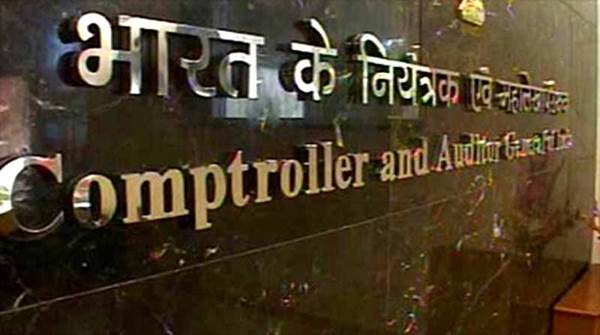Description

Copyright infringement not intended
In News
- Recently Comptroller and Auditor General (CAG) tabled a report in the Delhi Assembly.
- According to the report ‘Over 94% of the amount meant for the welfare of labourers lying unused”.
- The report also highlighted that the cess collected for providing social security, healthcare, etc was being poorly utilised.
Comptroller and Auditor General of India
- The constitution of India under Article 148 provides for an independent office of the Comptroller and Auditor General of India (CAG).
- He is the head of the Indian Audit and Accounts Department.
- He is the guardian of the public purse and controls the entire financial system of the country at both levels—the Center and the state.
Appointment and Term
- The CAG is appointed by the president of India by a warrant under his hand and seal.
- He holds office for six years or up to the age of 65 years, whichever is earlier.
- He can resign at any time from his office by addressing the resignation letter to the president.
- He can also be removed by the president on the same grounds and in the same manner as a judge of the Supreme Court.
- In other words, he can be removed by the president based on a resolution passed to that effect by both the Houses of Parliament with the special majority, either on the ground of proven misbehaviour or incapacity.
- He is not eligible for further office, either under the Government of India or of any state, after he ceases to hold his office.
- His salary and other service conditions are determined by the Parliament. His salary is equal to that of a judge of the Supreme Court.
- The administrative expenses of the office of the CAG, including all salaries, allowances and pensions of persons serving in that office are charged to the Consolidated Fund of India. Thus, they are not subject to the vote of Parliament.
Duties and Powers
- Acts as a guide, friend and philosopher of the Public Accounts Committee of the Parliament.
- The constitution (Article 149) authorizes the Parliament to prescribe the duties and powers of the CAG about the accounts of the Union and the states and any other authority or body.
- Audits the accounts related to all expenditure from the Consolidated Fund of India, consolidated fund of each state and consolidated fund of each union territory having a Legislative Assembly.
- Audits all expenditures from the Contingency Fund of India and the Public Account of India as well as the contingency fund of each state and the public account of each state.
- Audits all trading, manufacturing, profit and loss accounts, balance sheets and other subsidiary accounts kept by any department of the Central Government and state governments.
- Audits the receipts and expenditure of the Center and each state to satisfy himself that the rules and procedures on that behalf are designed to secure an effective check on the assessment, collection and proper allocation of revenue.
- Audits the receipts and expenditures of the following:
- All bodies and authorities are substantially financed from the Central or state revenues;
- Government companies; and other corporations and bodies, when so required by related laws.
- Advises the President about the prescription of the form in which the accounts of the Center and the states shall be kept (Article 150).
- Submits his audit reports relating to the accounts of the Center to the President, who shall, in turn, place them before both the Houses of Parliament (Article 151).
- Submits his audit reports relating to the accounts of a state to the governor, who shall, in turn, place them before the state legislature (Article 151).
- The President lays these reports before both the Houses of Parliament.
- After this, the Public Accounts Committee examines them and reports its findings to the Parliament.
https://indianexpress.com/article/cities/delhi/over-94-of-money-meant-for-welfare-of-labourers-lying-unused-cag-report-8011172/#:~:text=Over%2094%25%20of%20money%20meant,Cities%20News%2CThe%20Indian%20Express
1.png)
https://t.me/+hJqMV1O0se03Njk9













